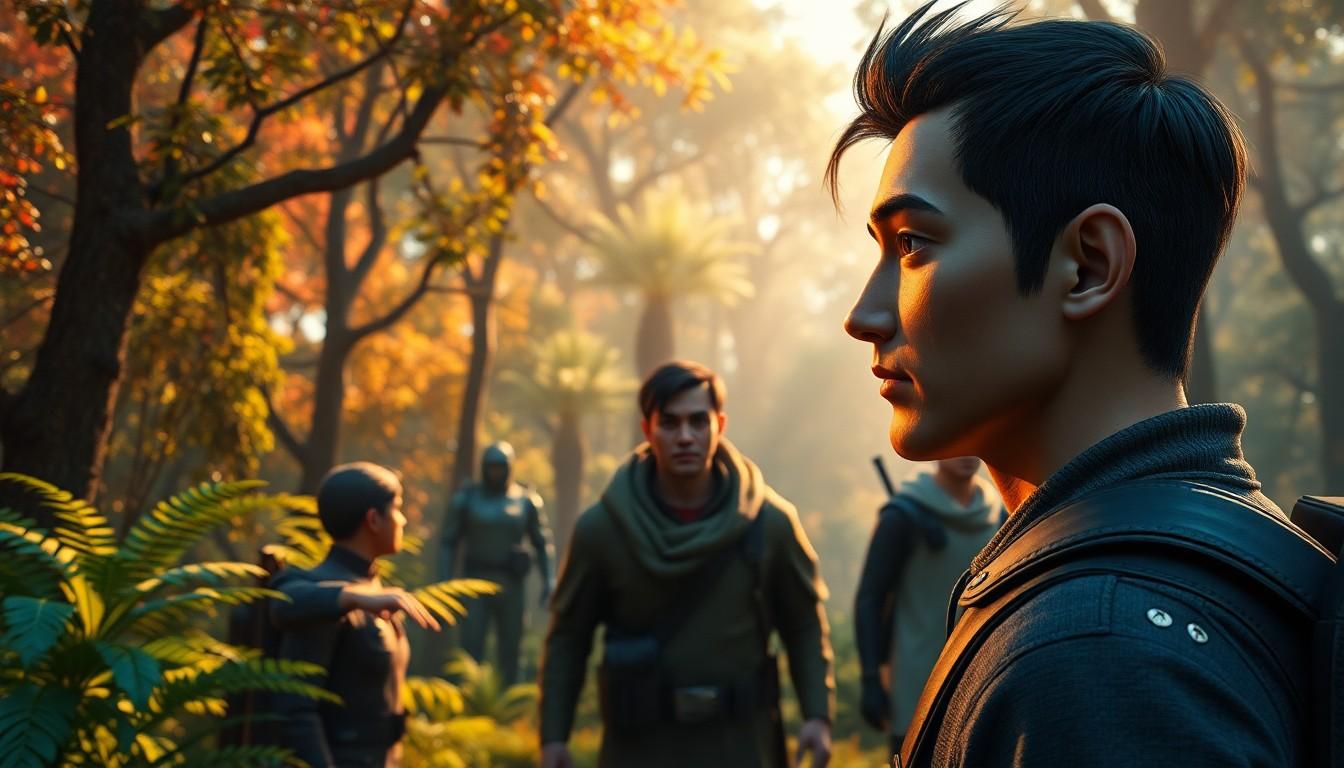The gaming world is on the brink of a revolution, and artificial intelligence is leading the charge. Imagine a future where NPCs have personalities deeper than your last Tinder date, adapting to players’ choices in real-time. With AI, games won’t just be about winning; they’ll be about engaging in epic narratives that evolve with every decision.
Future of AI in Gaming
Artificial intelligence has revolutionized many aspects of gaming. Intelligent algorithms enable non-playable characters (NPCs) to learn from player behavior. Advanced AI systems use machine learning to create more immersive experiences.
Dynamic narratives rely on player choices rather than preset outcomes. This development makes storylines more engaging. Players may encounter unique story arcs shaped by their decisions, enhancing replayability. Games such as “The Last of Us Part II” exemplify this trend, showcasing how AI can facilitate emotional connections.
Procedural content generation benefits from AI as well. Algorithms create diverse environments, quests, and challenges tailored to player skill levels. For instance, “No Man’s Sky” illustrates how AI can generate entire planets, each with distinct ecosystems.
Behavioral adjustments in NPCs lead to more realistic interactions. Intelligent NPCs can react differently based on the player’s past actions. This adaptability creates memorable encounters, further enhancing the immersive nature of gaming.
AI can also improve matchmaking systems. By analyzing player performance and preferences, these systems ensure balanced multiplayer experiences. For example, “Overwatch” uses AI to match players of similar skill levels, fostering competitive fairness.
The integration of voice recognition technology represents another frontier. Players can interact with characters using natural language. This innovation allows for a deeper level of engagement, where dialogue can shape gameplay.
Overall, AI’s impact on gaming continues to expand. Innovations in player interaction, procedural generation, and adaptive AI behaviors shape a rich gaming landscape. The future of AI in gaming promises even more profound experiences that redefine entertainment.
Current Trends in AI Technology

AI technology continuously reshapes gaming, enhancing player experiences through various advancements. The integration of machine learning and AI-driven behavior in games represents two key trends.
Machine Learning in Game Development
Machine learning significantly influences game development processes. Developers utilize algorithms to analyze player interactions, enabling them to create personalized content. Game design adapts based on player preferences, ensuring unique experiences every time. Advanced analytics tools streamline feedback, allowing for iterative improvements. According to industry reports, over 65% of developers embrace AI to optimize gameplay and engagement. Utilizing machine learning, games evolve, bringing excitement and freshness to recurring player interactions.
AI-Driven NPC Behavior
AI-driven NPC behavior enhances realism in games. NPCs adapt their actions based on player decisions, creating a sense of dynamic storytelling. They learn from past encounters, resulting in unpredictable and engaging gameplay. Developers leverage AI to design NPCs that respond genuinely to player inputs. Games like “The Last of Us Part II” exhibit such behavior, where characters evolve emotionally and narratively. This emerging trend transforms NPCs into memorable, relatable figures, fostering deeper connections with players. As AI technologies advance, engaging interactions with NPCs become a standard feature in modern gaming.
The Future of AI in Gaming
Artificial intelligence will revolutionize gaming experiences, emphasizing immersion and engagement.
Enhanced Player Experience
AI enhances player experience by creating personalized interactions. Dynamic narratives will respond to decisions made during gameplay, fostering emotional connections. Unique storylines arise through adaptive NPC behavior, making each playthrough distinct. AI learns from player choices, continually refining gameplay to meet individual preferences. Games like “The Last of Us Part II” showcase this capability, where characters reflect player actions. Over 65% of developers leverage AI technology to craft tailored experiences. This shift ensures that the focus shifts from mere competition to rich storytelling.
Realistic Game Worlds
Realistic game worlds emerge from advanced AI processes like procedural content generation. Intelligent algorithms create diverse environments, adapting challenges based on player skill. Titles such as “No Man’s Sky” exemplify this approach, providing unique exploration opportunities. Increased realism in NPC interactions makes encounters more engaging. Players will encounter more believable characters that respond naturally to their actions. This evolution in AI technology generates immersive experiences that keep players invested in the game world, enhancing long-term enjoyment.
Challenges and Limitations
AI’s integration into gaming faces significant challenges that could hinder its full potential.
Ethical Considerations
Many developers grapple with ethical dilemmas regarding AI. Issues surrounding data privacy arise while collecting player information to enhance interactive experiences. Furthermore, concerns about bias in AI algorithms impact gameplay fairness. For instance, biased NPC behavior may lead to discriminatory outcomes against certain player groups. Transparency in AI operations remains crucial as players deserve to understand how decisions are made. These ethical considerations demand ongoing attention to ensure that AI in gaming fosters a fair and respectful environment for all players.
Technical Barriers
Technical challenges pose significant obstacles for AI in gaming. Limited processing power restricts how sophisticated AI behaviors can be. Additionally, developing algorithms capable of true learning and adaptation requires extensive resources. The gaming industry must address the complexities of integrating machine learning within existing game engines. Games with dense environments and numerous NPCs face increased difficulties in maintaining performance while utilizing advanced AI techniques. Overcoming these barriers is essential for the future growth and effectiveness of AI-driven gaming experiences.
bringing excitement and freshness
The future of AI in gaming is poised to reshape how players interact with virtual worlds. With advancements in machine learning and procedural content generation, players can expect richer narratives and more personalized experiences. As NPCs evolve to reflect player choices, emotional connections deepen, making every gaming session unique.
While challenges like ethical considerations and technical limitations remain, the potential for immersive storytelling and engaging gameplay is immense. Developers are increasingly embracing AI to create dynamic environments and memorable characters. This evolution not only enhances entertainment but also sets the stage for a new era in gaming where every decision matters. The integration of AI will continue to push boundaries, ensuring gaming experiences are more engaging and meaningful than ever before.




